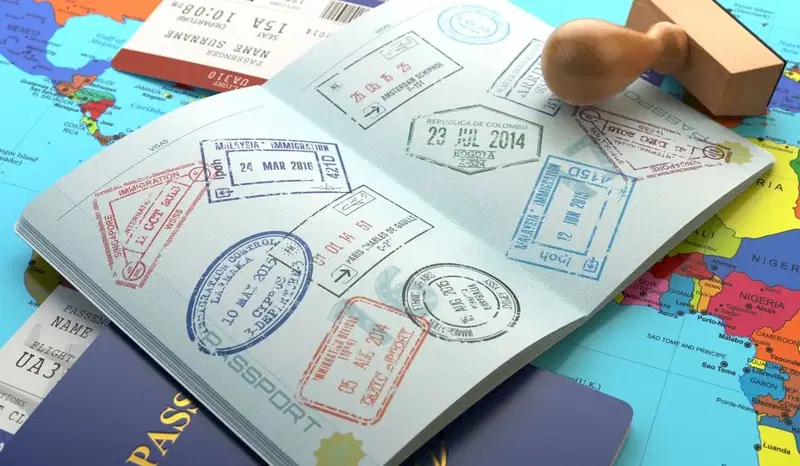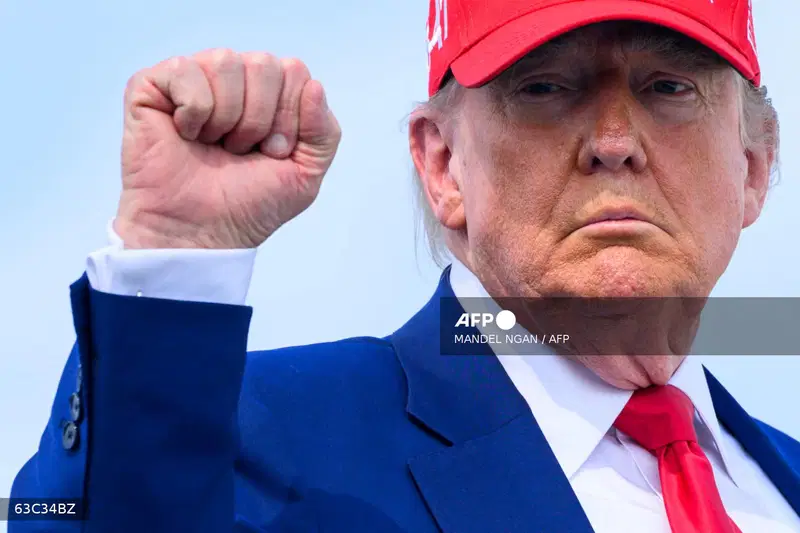Headline
9 Countries That Offer ‘Golden Visa’ In Exchange For Investments

U.S. President Donald Trump has proposed replacing the existing EB-5 immigrant investor program with a new “gold card” golden visa system, allowing foreign investors to obtain American citizenship by making a $5 million payment.
The EB-5 visa program, which currently grants U.S. permanent residency to individuals who invest at least $800,000 in job-creating projects, has long been a pathway for wealthy investors seeking U.S. citizenship.
Trump’s new proposal would significantly raise the financial threshold while offering a more direct route to American nationality.
Global Golden Visa Programs
The concept of securing residency or citizenship through investment is not unique to the U.S. Many countries offer “golden visas” or similar schemes to attract foreign capital. Below are some of the most notable programs worldwide:
READ ALSO: Top 10 Countries With Lowest Divorce Rate In The World
Europe
Greece – Introduced in 2013, Greece’s program grants permanent residency to individuals who invest a minimum of €250,000 ($262,800) in real estate. Residency permits are renewable every five years.
Malta – Foreign nationals can acquire citizenship by contributing at least €600,000 to Malta’s economic development, with a required residence period of at least 36 months.
Italy – Italy’s golden visa grants residency to investors contributing between €250,000 and €2 million, with visa-free access to the Schengen Area.
Cyprus – Requires a minimum investment of €300,000 for foreign nationals seeking residency.
READ ALSO: Top 5 Countries For Nigerians, Other Foreigners Looking To Start A Business Abroad
Middle East
United Arab Emirates – Investors who contribute at least 2 million dirhams ($544,602) to the UAE economy can qualify for a long-term residence permit, commonly known as the UAE golden visa.
Caribbean
Several Caribbean nations offer citizenship in exchange for economic contributions:
Dominica – A minimum investment of $200,000 secures citizenship for applicants and their families.
Grenada – Requires an investment of at least $235,000 and grants visa-free travel to several countries, including China, Russia, and the Schengen Area.
St. Kitts and Nevis – One of the oldest programs, established in 1984, requires a $250,000 contribution in exchange for full citizenship.
READ ALSO: 17 Countries Banned From FIFA World Cups [Full List]
Saint Lucia – A minimum investment of $240,000 grants full citizenship, subject to due diligence checks.
Antigua and Barbuda – Citizenship is granted to applicants over 18 who invest at least $230,000.
Asia
Thailand – The Thailand Privilege Residence Program offers residency for up to 20 years with a minimum investment of 650,000 baht ($19,299). Additionally, a Long-Term Residence Program provides 10-year visas for investments starting at 50,000 baht.
Indonesia – Launched in 2024, Indonesia’s program offers a 10-year visa to foreign investors contributing up to $10 million, granting them access to the country’s economic opportunities.
Trump’s proposed “gold card” initiative would place the U.S. among the nations leveraging investment-based immigration to attract high-net-worth individuals. While details of the plan remain unclear, the proposed cost of $5 million is significantly higher than similar programs in other countries.
Headline
U.S. Lawmaker Reacts To Nigeria, U.S. Airstrikes

United States Congressman, Riley Moore, has stated that President Donald Trump is determined to put an end to the killing of Christians in Nigeria, warning that further action may follow if the violence persists.
Moore made the statement on Friday via his official X handle.
According to the lawmaker, the strike represents the first step in addressing what he described as the ongoing slaughter of Christians and the broader security crisis affecting Nigerians across religious and ethnic lines.
READ ALSO:US Dept Of War Shares Video Of Air Strikes In Nigeria
“President Trump has been clear that the killing of Christians in Nigeria must end,” he said.
He that the administration’s resolve on the matter should not be underestimated.
“As I stated at the outset: Do not test President Trump‘s resolved in this matter.
READ ALSO:JUST IN: US Forces Bomb Terrorists Camps In Nigeria
“Tonight’s strike in coordination with the Nigerian government is just the first step to ending the slaughter of Christians and the security crisis affecting all Nigerians,” he said.
He stressed that the operation signals a stronger stance by the United States in support of Nigeria’s efforts to tackle terrorism and violent extremism, noting that further measures could be taken if the situation does not improve.
Headline
US Dept Of War Shares Video Of Air Strikes In Nigeria

A video footage of the US military air strikes in Nigeria has emerged.
The video was released by the US Department of War following its air strikes against terrorists in Sokoto.
Earlier, the US secretary of War, Pete Hegseth had confirmed that military air strikes hit terrorists in Nigerians, saying it was deadly.
Later on, the US. African Command, confirmed that it conducted the attacks described as very deadly by President Donald Trump.
Trump said he was only keeping the promise he made earlier last month to strike the terrorists he believes are killing innocent Christians.
READ ALSO:JUST IN: US Forces Bomb Terrorists Camps In Nigeria
Although described as powerful and deadly, the casualty caused by the attack is yet to be released.
Explaining further, security expert, Brant Philip, said the strikes may have been launched “from the USS Paul Ignatius, using a Tomahawk missile.”
The Nigerian government through its ministry of foreign affairs has also confirmed that the strikes were successful.
Watch video here
Headline
JUST IN: US Forces Bomb Terrorists Camps In Nigeria

United States President Donald Trump said US forces conducted deadly strikes against Islamic State terrorists in northwestern Nigeria, and vowed more attacks if the militants keep killing Christians.
“I have previously warned these Terrorists that if they did not stop the slaughtering of Christians, there would be hell to pay, and tonight, there was,” Trump posted on his Truth Social platform, adding that “the Department of War executed numerous perfect strikes.”
READ ALSO:JUST IN: Kano Lawmaker, Sarki Aliyu Daneji, Dies Hours After Colleague’s Passing
Trump stated that the Department of War “executed numerous perfect strikes, as only the United States is capable of doing. Under my leadership, our Country will not allow Radical Islamic Terrorism to prosper.”
The US president wished everyone Merry Christmas, “including the dead Terrorists, of which there will be many more if their slaughter of Christians continues.”
Details later.

 News4 days ago
News4 days agoPHOTOS: New Era In Furupagha-Ebijaw As Okpururu 1 Receives Staff Of Office

 News3 days ago
News3 days agoUBTH CMD Marks 120 Days In Office, Expresses Commitment To Providing Conducive Working Environment

 News4 days ago
News4 days agoOPINION: Gumi And His Terrorists

 News3 days ago
News3 days agoFIRS Confirms NIN As Tax ID

 Metro3 days ago
Metro3 days agoFintiri Pardons Man Sentenced To Death For ‘Killing Herdsman In Self-defence’, Others

 News4 days ago
News4 days agoFG Declares Public Holidays For Christmas, New Year Celebrations

 News4 days ago
News4 days agoOPINION: Christmas And A Motherless Child

 News2 days ago
News2 days agoJUST IN: Kano Lawmaker, Sarki Aliyu Daneji, Dies Hours After Colleague’s Passing

 News4 days ago
News4 days agoOPINION: My Man Of The Season

 News3 days ago
News3 days agoKWAM 1 Withdraws From Awujale Race, Ends Court Challenge






























